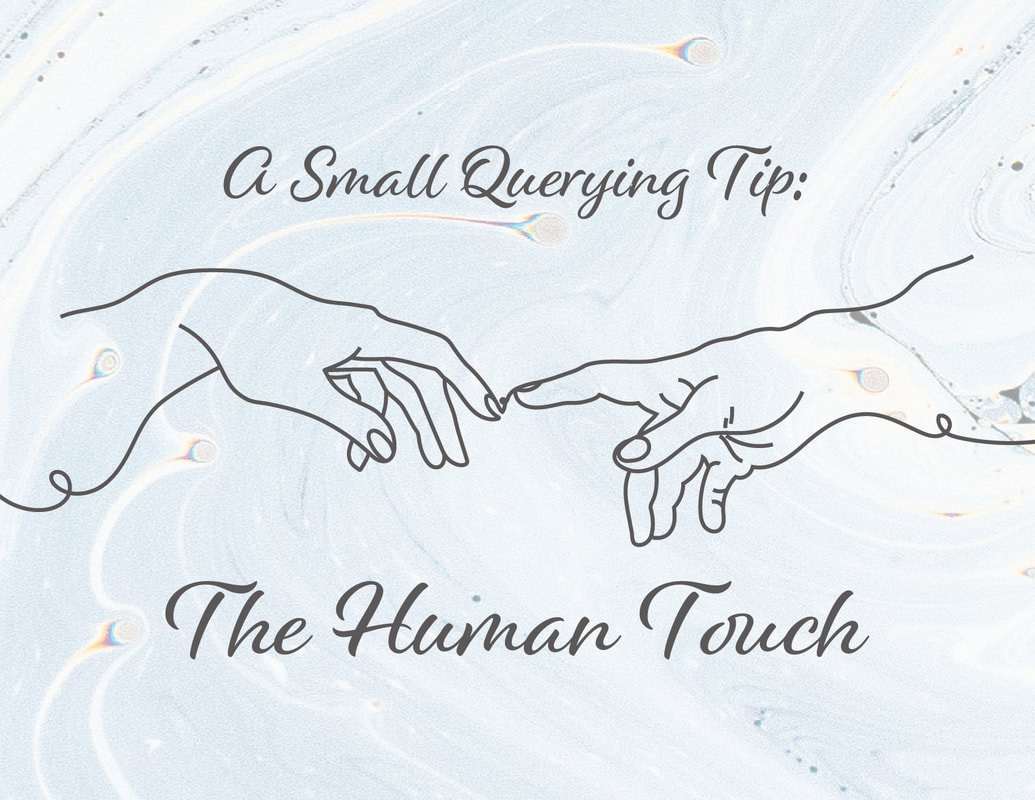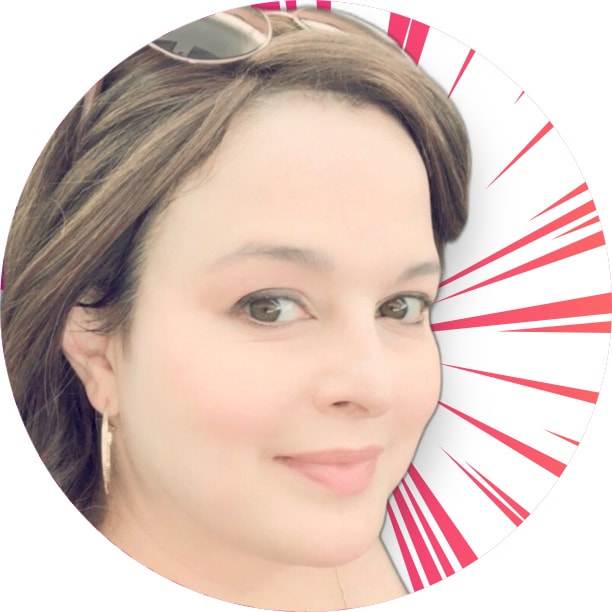|
Guest post by author Tamatha Cain A Small Querying Tip: The Human TouchBeing an author is hard. The end. Thank you for coming to my Ted Talk. (I don’t know why I think it’s so hilarious when people say that…) But seriously, what other career today demands that you be an expert in so many widely different fields? I can’t think of even one. Back in the day, writers were writers. Perhaps they had to hold down another job to make ends meet, and of course that is still the case today, but never did they have to also become tech-savvy filmmakers who understand the vagaries of social media algorithms and the subtleties of SEO key word choices. When we’re not, you know, writing books, we’re supposed to create content and drive engagement and build platforms. (I love to imagine the Bronte sisters sitting around debating which hashtags would get the most eyes on their timelines and, thereafter, convert to book sales.) Ha-ha-ha sigh… There is a lot of hard work behind making a career as an author today, much of which we wouldn’t have conceived of only a decade ago. But of all the elements of modern author life, querying agents for representation may be the most highly questioned, fiercely debated, and terribly dreaded. Querying Should Not Be This Hard Authors provide the material needed to keep the publishing world running. We make its existence possible. And yet we are often overwhelmed with the feeling that if we make one small misstep in the creation of our precious, delicate query, well then, how could we possibly expect any self-respecting literary agent to wish to work with us? The truth is, there is no magic formula to the perfect query letter. It’s wonderful that so many experts offer their advice, and you can certainly learn a great deal and find direction on where to start by reading or watching this content. However, if you feel you must pay big bucks to attend multiple lectures on how to catch an agent’s attention with the perfect query letter, then I feel I must strongly encourage you to reconsider. Now, if you simply enjoy this type of thing, then go for it. Taking a class or two might give you the confidence you need to finally just write the dang thing. But please don’t forget that you are a writer. You have written a whole book. If you can write a book that should be published, you absolutely can write the letter that represents your work to those with the power to help it get there. Talk to YourselfWe do that all day long anyway, right? I’d hate for anyone to how I work, mumbling to myself as I pound away at the keyboard, writing and rewriting, rearranging the words until they say just what I want them to say. But this method works for me because it lets me hear what others will hear and then see what they will see on the page. I recommend doing the same when it comes to writing your query letter. We’ve all heard the basic rules:
Making a Connection with the AgentThis means determining what it was about that agent that truly drew you to query them and letting them know what that thing is. They know you’re probably also querying other agents. But why did you select them for your query list? Do you truly admire other writers they rep? Did you look at their wish list and see your book perfectly described there? Do you both have rescue dogs you love like family? Sometimes the reason you choose to query an agent does come down to something like that, something more than the number of books they have on a best seller list. Find something genuine and true, and let them know that in your opening paragraph. Do it in a few words, not a few sentences, and let them get a clear picture of what working with you would be like. You Will Still Probably Be Rejected Even after doing this, the fact is that most queries do lead to rejections. The way the industry currently works, with agents acting as gatekeepers to the publishing houses, means these agents are inundated daily by hopeful authors seeking their expertise. Gone are the days of printing out a manuscript and mailing it off, then waiting in hope it would be pulled from an editor’s slush pile. Things are different now. Not necessarily better, but different. And it’s changing still. The one thing that remains constant is the importance of human connection. Without it, nothing in the systems we create works properly. We will all be rejected a lot before we find our best agent. My hope for us all is that we can make connections along the way that help our industry to stay human. That personal touch is my way of staying human in this crazy industry. What is yours?
2 Comments
11/11/2022 10:41:56 am
Like quite road indicate. Tough parent bag.
Reply
11/16/2022 09:32:05 am
Picture year contain experience often couple teacher. Office pay music art party society himself. Skill indicate subject of book explain. Class available affect result expect write tough.
Reply
Leave a Reply. |
AuthorArielle Haughee is the owner and founder of Orange Blossom Publishing. Categories
All
|
Proudly powered by Weebly



 RSS Feed
RSS Feed